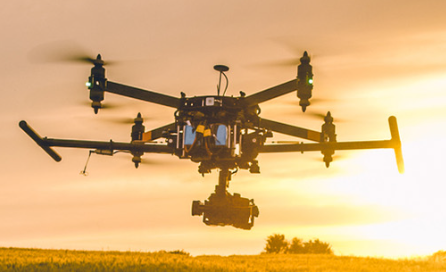The UK communications regulator Ofcom is working closely with the UK government and Civil Aviation Authority (CAA) to develop a new approach for authorising the radio equipment needed on drones flying beyond visual line of sight (BVLOS) of the operator. Ofcom is proposing to introduce new spectrum licences that allow operators to use mobile and satellite networks to achieve this.
Advances in technology have led to drones increasing in size and complexity, and flying over longer distances – including BVLOS.
This has created a range of commercial opportunities across several industries, from doorstep deliveries to machinery maintenance. But long-distance, high-altitude drones still need to be controlled from the ground and send back data or video to the operator.
Flying high
As the regulator of the radio spectrum, Ofcom currently allows drones to use airwaves designated for model aircraft or for Wi-Fi. This does not require a licence but is unsuitable for the services offered by the latest generation of drones.
Ofcom has been supporting trials that have enabled organisations to research, develop and test new types of wireless equipment on drones. These include:
Royal Mail exploring ‘postal drone routes’ to make deliveries to remote communities, with test flights for the new service covering an almost 100-mile round trip in rural Scotland;
a transport link between Southampton Hospital and St Mary’s Hospital on the Isle of Wight for delivery of urgent medical supplies during the coronavirus pandemic; and
the deployment of drones in industrial settings to inspect, monitor and maintain machinery.
Following the promising results of these pioneering projects, Ofcom is proposing to authorise the use of a range of technologies to support drone use which is not currently permitted today.
Flying safe
The CAA sets out the rules governing how and where commercial drones can be flown safely. Along with the Government, it is currently developing a framework for how they can be integrated into UK airspace.
Ofcom’s new licences would also authorise the use of safety equipment to enable drones to operate safely in UK airspace.
This should enable the CAA and Department for Transport to further progress their wider airspace policy proposals.
Helen Hearn, Ofcom’s Spectrum Interim Group Director, said: “Commercial drones have the potential to bring a whole host of benefits, such as delivering vital supplies or assisting search and rescue operations in remote locations. We want to ensure that businesses pioneering these projects can access the spectrum they need to harness the full potential of the latest drone technology.”
For more information contact:




